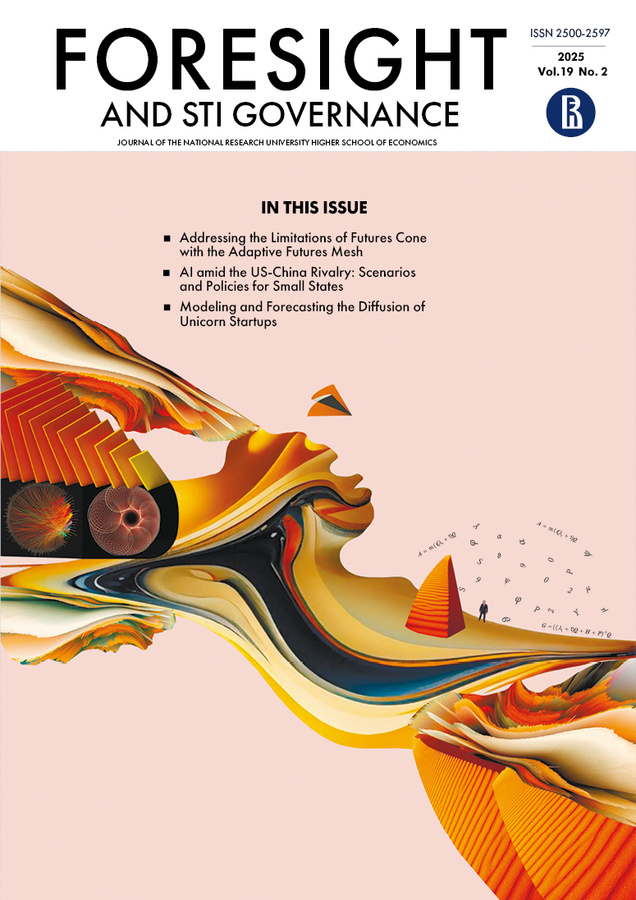Learning to Theorize in a Complex and Changing World
- Authors: Swanson H.1, Collins A.1
-
Affiliations:
- Northwestern University
- Issue: Vol 13, No 2 (2019)
- Pages: 98-106
- Section: FUTURE SKILLS DEVELOPMENT
- URL: https://journals.rcsi.science/1995-459X/article/view/347021
- DOI: https://doi.org/10.17323/2500-2597.2019.2.98.106
- ID: 347021
Cite item
Abstract
About the authors
Hillary Swanson
Northwestern University
Email: hillary.swanson@northwestern.edu
633 Clark St, Evanston, IL 60208, United States
Allan Collins
Northwestern University
Email: acollins1937@gmail.com
633 Clark St, Evanston, IL 60208, United States
References
- Atkins P. (2010) The laws of thermodynamics: A very short introduction. Oxford: OUP Oxford.
- Bang M., Medin D. (2010) Cultural processes in science education: Supporting the navigation of multiple epistemologies // Science Education. Vol. 94. № 6. P. 1008-1026.
- Bang M., Warren B., Rosebery A.S., Medin D. (2012) Desettling expectations in science education // Human Development. Vol. 55. № 5-6. P. 302-318.
- Bruner J.S. (1977) The process of education. Cambridge, MA: Harvard University Press.
- Chi M.T., Feltovich P.J., Glaser R. (1981) Categorization and representation of physics problems by experts and novices // Cognitive Science. Vol. 5. № 2. P. 121-152.
- Collins A. (2017) What’s worth teaching: Rethinking curriculum in the age of technology. New York: Teachers College Press.
- Devaney R.L. (1992) A first course in chaotic dynamical system: Theory and experiment. Reading, MA: Addison-Wesley Publishing Co.
- Devlin K. (2012) Introduction to mathematical thinking. Palo Alto, CA: Keith Devlin.
- Di Sessa A.A. (1991) If we want to get ahead, we should get some theories // Proceedings of the Thirteenth Annual Meeting of the North American Chapter of the International Group for the Psychology of Mathematics Education / Ed. R.G. Underhill. Vol. 1 (Plenary Lecture and Reaction). Blacksburg, VA: Virginia Tech. P. 220 -239.
- Di Sessa A.A. (2014) The construction of causal schemes: Learning mechanisms at the knowledge level // Cognitive Science. Vol. 38. № 5. P. 795-850.
- Einstein A. (1936) Physics and Reality // Journal of the Franklin Institute. Vol. 221. № 3. P. 349-382.
- Feyerabend P.K. (1993) Against Method. London: Verso.
- Gentner D. (1983) Structure-mapping: A theoretical framework for analogy // Cognitive Science. Vol. 7. № 2. P. 155-170.
- Gentner D., Colhoun J. (2010) Analogical processes in human thinking and learning // On Thinking: Vol. 2. Towards a Theory of Thinking / Eds. A. von Muller, E. Poppel, B. Glatzeder, V. Goel, A. von Muller), Heidelberg, New York, Dordrecht, London: Springer, pp. 35-48.
- Gick M.L., Holyoak K.J. (1983) Schema induction and analogical transfer // Cognitive Psychology. Vol. 15. № 1. P. 1-38.
- Hempel C. (1974) Formulation and Formalization of Scientific Theories: A Summary-Abstract // The Structure of Scientific Theories / Eds. T.S. Kuhn, F. Suppe. Chicago: University of Illinois Press. P. 244-254.
- Hempel C.G., Oppenheim P. (1948) Studies in the logic of explanation // Philosophy of Science. Vol. 15. № 2. P. 135-175.
- Kolodner J.L., Camp P.J., Crismond D., Fasse B., Gray J., Holbrook J., Puntambekar S., Ryan M. (2003) Problem-based learning meets case-based reasoning in the middle-school classroom: Putting Learning by Design into practice // Journal of the Learning Sciences. Vol. 12. № 4. P. 495-547.
- Larkin J.H. (1983) The role of problem representation in physics // Mental Models / Eds. D. Gentner, A.L. Stevens. Hillsdale, NJ: Lawrence Erlbaum Associates, Inc. P. 75-98.
- Loewenstein J., Gentner D. (2001) Spatial mapping in preschoolers: Close comparisons facilitate far mappings // Journal of Cognition and Development. Vol. 2. № 2. P. 189-219.
- Smith III J.P., diSessa A.A., Roschelle J. (1994) Misconceptions reconceived: A constructivist analysis of knowledge in transition // Journal of the Learning Sciences. Vol. 3. № 2. P. 115-163.
- Suppe F. (1972) What's wrong with the received view on the structure of scientific theories? // Philosophy of Science. Vol. 39. № 1. P. 1-19.
- Suppe F. (1974) The search for philosophic understanding of scientific theories: Introduction // The structure of scientific theories / Eds. T.S. Kuhn, F. Suppe. Chicago: University of Illinois Press. P. 244-254.
- Swanson H. (forthcoming) Refining everyday thinking through scientific theory building // Deeper learning, communicative competence, and critical thinking: Innovative, research-based strategies for development in 21st century classrooms / Ed. E. Manalo. Abingdon-on-Thames: Routledge.
- Swanson H., Collins A. (2018) How failure is productive in the creative process: Refining student explanations through theory-building discussion // Thinking Skills and Creativity (Advanced online publication). Режим доступа: , дата обращения 04.02.2019. DOI:https://doi.org/10.1016/j.tsc.2018.03.005
- Toulmin S.E. (1958) Introduction to the Philosophy of Science. Watford: William Brendan and Son.
- Von Glasersfeld E. (1991) Abstraction, re-presentation, and reflection: An interpretation of experience and Piaget's approach // Epistemological foundations of mathematical experience / Ed. L. Steffe. New York: Springer. P. 45-67.
- Warren B., Ballenger C., Ogonowski M., Rosebery A.S., Hudicourt?Barnes J. (2001) Rethinking diversity in learning science: The logic of everyday sense?making // Journal of Research in Science Teaching. Vol. 38. № 5. P. 529-552.
- Wilensky U., Rand W. (2007) Making models match: Replicating an agent-based model // Journal of Artificial Societies and Social Simulation. Vol. 10. № 4. Article 2. Режим доступа:http://jasss.soc.surrey.ac.uk/10/4/2.html, дата обращения 04.02.2019.
Supplementary files









